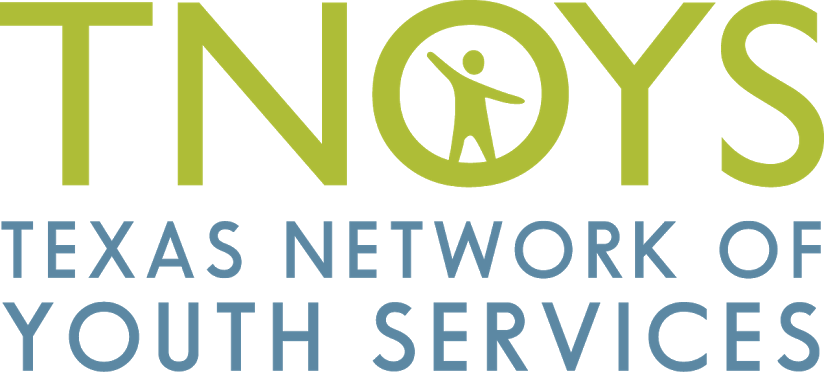 By Dr. Katherine Byers, TNOYS Director of Child Welfare Policy
By Dr. Katherine Byers, TNOYS Director of Child Welfare Policy
The absence of community based mental health care results in those who need treatment ending up instead in hospitals, on the streets, and in the foster care and juvenile justice systems. To help address this problem, Texas applied for and received the Youth Empowerment Services Waiver (YES) — a 1915(c) waiver that allows for flexibility in the spending of Medicaid dollars. This change allows children (ages 3-18) diagnosed with a Serious Emotional Disturbance (SED) to get help while they are still living with their families, before out of home care (i.e., foster care) is the only option. Since 2015, when the waiver became available through every Local Mental Health Authority (LMHA) throughout the state; it has demonstrated its effectiveness. However, there may be additional opportunities to ensure it reaches all the children it was created to support.
Children who would not normally qualify for Medicaid coverage can receive it under the waiver with an SED diagnosis, as it is considered a disabling condition. After they qualify, the child and his/her family receive wrap around services for the mental health issues they are facing, including weekly therapy and an array of additional support based on an individualized service plan created to meet the unique needs of that child and family. The wraparound process builds on support that the family and community provides and helps get the child the services he or she needs without entry into the foster care system.
A year after services are initiated, the child’s need for the waiver is reevaluated — but this is where a problem arises. If services have been successful, then in all likelihood the new assessment will no longer qualify the child in terms of severity of SED symptoms or the risk of out of home placement. If the diagnosis was the only reason the child qualified for Medicaid they will lose their coverage and can no longer receive services from the LMHA.
Clinicians report that fidelity to the YES Waiver model requires 15 months of treatment, meaning that the 12-month reevaluation timeline is too soon to ensure the program has effectively addressed a child’s issues. They estimate that about 50% of families whose services are terminated at a year-end up coming back in a crisis state. To address this problem, the waiver could be amended to delay reevaluation. Another option may be earlier initiation of the family’s transition to a less intensive service array. Either of these options could take place over a trial period during which an evaluation analyzes the impact these changes have on recidivism.
Two other amendments that could be considered by the Health and Human Services Commission (HHSC) involve the populations of homeless unaccompanied youth and youth exiting juvenile detention facilities. Although not necessarily emancipated, by law 16- and 17-year-olds who are homeless and on their own can consent to most medical and social services, including the YES Waiver. However, they may be sleeping on a friend’s couch or temporarily staying in a shelter — residences that are not currently included in the YES Waiver.
In addition, an assessment for Waiver services could be initiated at 90 days in the case of youth living in a shelter versus 30 days (currently a part of the waiver for youth exiting residential treatment facilities). Ninety days is the time limit for shelters to house youth five years of age or older. This would give shelter staff the maximum amount of time to work with youth and their families to transition back into the home with support in place from wraparound and additional services. The 90-day timeline could also benefit youth exiting juvenile detention. If the parents of these youth know there is potential help available when their child returns home, this may avoid them refusing to pick the child up and Child Protective Services having to get involved.
The YES Waiver is an excellent tool for getting youth and families the mental health care they need. However, clinicians report recidivism of those families whose services are terminated at a year so a solution to this needs to be explored. In addition, the waiver could be amended to serve not only those youth who are still at home with their families, but also those who are homeless or exiting juvenile detention. Removing these barriers could ensure that children return to or stay at home and receive the support they and their families need.
